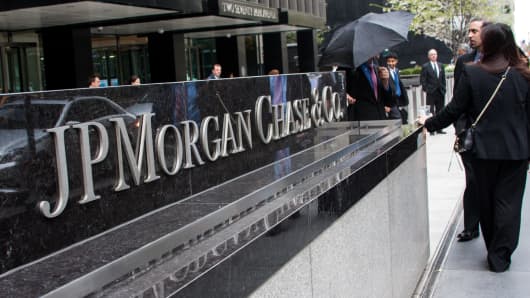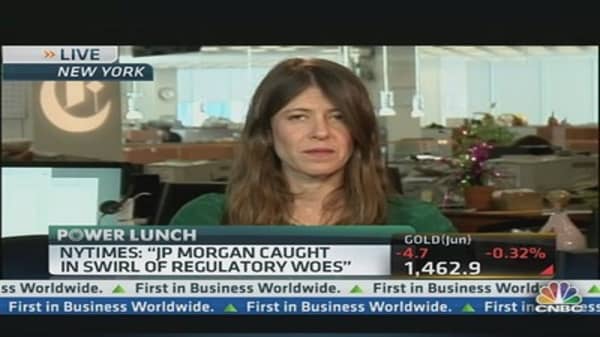The last time investors heard the terms "manipulation" and "energy markets" in conjunction with one another, it was during the heady days of now-bankrupt Enron – which became a byword for fraud and market excess.
Yet just last week, regulators used those sharp words to accuse JPMorgan Chase of manipulating energy markets, language similar to that which once buffeted -- and eventually took down -- bankrupt energy giant Enron.
The bank now finds itself in the midst of a new regulatory morass.According to several reports, a unit of the banking giant is being scrutinized by the Federal Energy Regulatory Commission (FERC) for "manipulative schemes" that turned power plants into profit-making engines. The FERC may bring enforcement against them for what reports say were "schemes" adopted by traders to inflate market bids and JPMorgan's profits.
In a statement e-mailed to CNBC, the bank denied wrongdoing. JPMorgan is "in the process of responding to the staff's notice, so that the Commission has a full and fair record before it," the statement read. "We intend to vigorously defend the firm and the employees in this matter."





